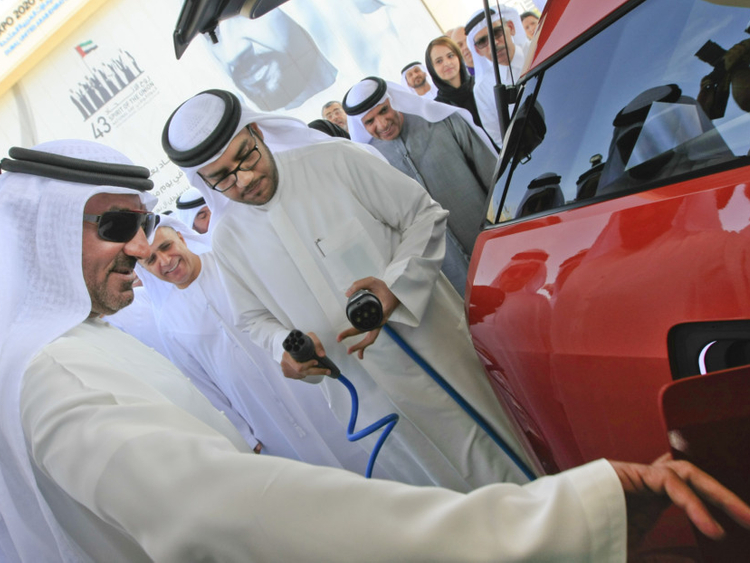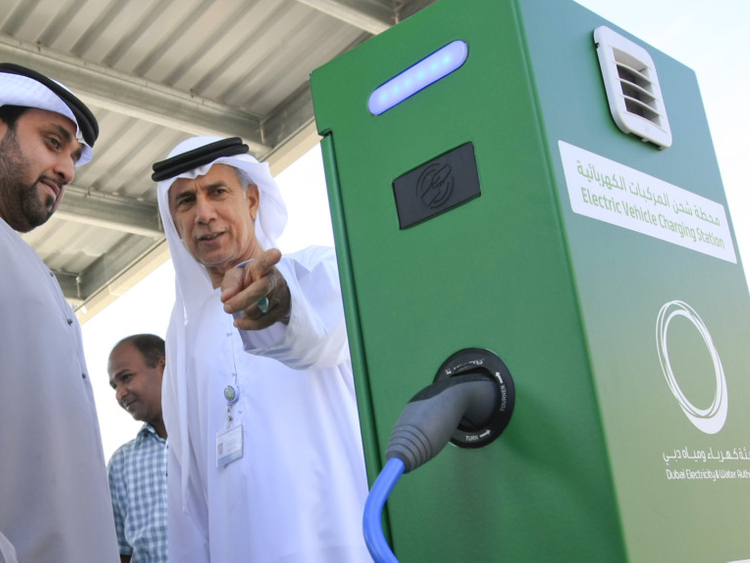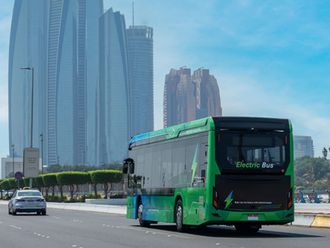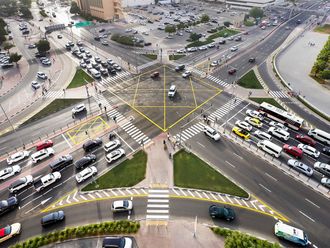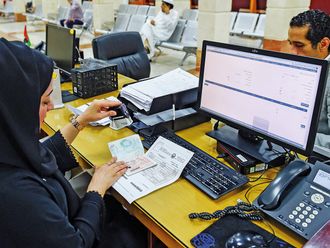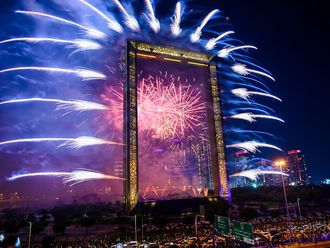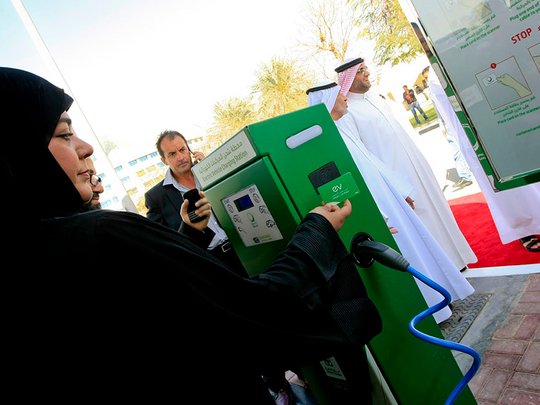
Dubai: Owners of hybrid and electric cars in Dubai, rejoice.
Sixteen charging stations for hybrid and electric vehicles (EV) were officially launched in Dubai on Tuesday to allow motorists to charge their vehicles across the city for roughly Dh7 for long-distance driving.
Dubai Electricity and Water Authority (Dewa) unveiled a solar-powered charging station at its headquarters on Tuesday.
Shaikh Ahmad Bin Saeed Al Maktoum, chairman of Dubai Supreme Council of Energy, Saeed Al Tayer, Managing Director and CEO of Dewa, Mattar Al Tayer, Chairman of the Board and Executive Director of the Roads and Transport Authority (RTA), were present during the launch along with other senior government officials.
“We are just in discussion with RTA and Dubai Municipality and also with concerned developers, after we finalise all that, by the end of this year, we will have 100 EV stations,” Saeed Al Tayer told Gulf News.
The range of the vehicles depends on driving conditions. Based on the published mileage of the fully electric Nissan Leaf or Tesla, which on average use 21.25 kWh/100 km, if the charging cost in Dubai is 29 fils per kWh, this means a Dubai owner may have to shell out Dh6.16 to cover 100km, or simply 0.06 fils per kilometre.
The initiative is in support of the Smart Dubai initiative and was announced during the 16th edition of Wetex in Dubai last year.
It is part of the three-pronged approach that Dewa is implementing, including connecting solar energy to houses and buildings, and smart applications through smart meters and grids.
Eighty-four more charging stations will be launched by the end of 2015 on main highways, government buildings, malls, airports, parks, and hotspots like Jumeirah Beach Residences, and major developments, among others. Those charging stations exposed to the sun will be solar-powered for a carbon-neutral option, meaning no greenhouse gases will be emitted into the atmosphere.
Hybrid or electric cars are relatively more expensive by a few thousands dollars, depending on the make, compared to conventional cars. But proponents said motorists may consider the fuel efficiency of hybrid and electric cars and low to zero emissions.
According to the State of Charge report updated in 2014 by the Union of Concerned Scientists, an electric vehicle driver, for example, could save nearly $13,000 (Dh47,710) on fuel costs and use 23,091 fewer litres of petrol during the life of the vehicle compared to the current average compact petrol car.
The charging time at the stations in Dubai varies, Waleed Salman, Executive Vice-President of Strategy and Business Development at Dewa, said. Fast-charge stations will provide about 80 per cent charge after 40 minutes.
“Some of them charge for two hours, some for 40 minutes, but it all depends on their batteries and capacity. We can see cars that can run up to 200km. There are others that can run up to 300km,” said Salman.
Salman believes the low price of petrol in the UAE will not deter motorists from switching to electric vehicles because the latter has many advantages. Apart from being environment-friendly and the cheap charging cost, electric cars don’t require regular maintenance that petrol engines do.
“You’re not going to do lubrication for the engine, no maintenance. The only maintenance required will be replacement for tyres, gears, and whatever is related to the movement of the car rather than the engine. More than 50 per cent of maintenance that we do with the normal car is not needed,” he said.
Car manufacturers including BMW, Renault, Lexus, and Nissan have electric and hybrid cars available in the UAE.


